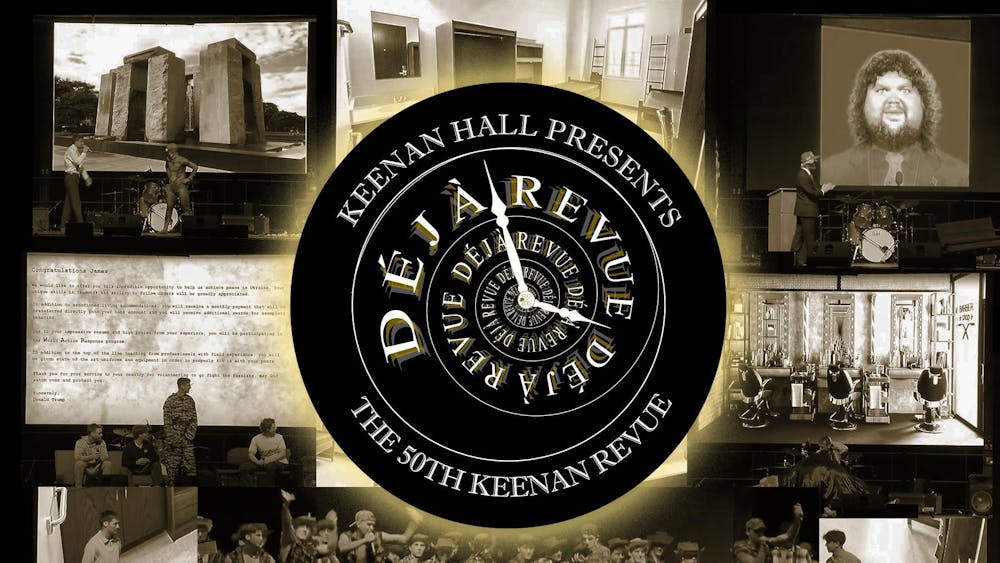
Third Coast Percussion has been pushing the limits of percussion performance for the past decade. During their performance at DeBartolo Performing Arts Center on Friday, the Chicago-based group pushed those boundaries even father.
The group is currently the ensemble-in-residence at Notre Dame. It commissions new works by composers and engage with the South Bend community as well as the student body during its time on campus. Recently the group has collaborated with the College of Engineering for a project which challenges students to develop new instruments.
Third Coast Percussion merges the energy of rock and dance music with the precision and innovation of classical compositions. While the typical college student in me can’t help but believe that parts of Friday’s performance would be better received at a festival, I found it challenging to refrain from dancing along. Nevertheless, most of their work is better appreciated in a refined venue.
A part of Friday’s performance, “A Sound Uttered, A Silence Crossed,” is a piece unlike any other. Integrating the choral performance of Notre Dame’s Collegium Musicum with the unique percussion of Third Coast, the result was overwhelmingly relatable and aggressively emotional. The work explores the human desire to communicate and connect, tracing the relationship with language throughout a lifetime.
The music itself was innovative, involving the use of unconventional instrumentation such as blowing into a seashell, swinging a tube in circles, using a typewriter and outlining letters on a drum face. The underlying music, played on conventional drums and xylophones, drove a feeling of increasing tension.
One of the many facets of the composition required audience members to pull out their phones — a hugely important modern form of communication. An extra layer of a part of the piece could be heard through the phone when you called in a certain number. Typically, using our phones requires us to block out the sounds coming from the outside world, but the coordination of sounds coming from the phone and from the stage created a profound and connected experience.
The most unique part of the performance was the text that was projected above the stage. It included partially incoherent bits of statements demonstrating different life experiences, from learning to talk to writing letters to the desire to connect with those who have passed. The demonstration of confusion and limitation of language that was brought about by the text was a hugely impactful part of the piece. The result was disturbing, and I found myself not quite ready to applaud after the abrupt conclusion. Most people don’t enter a percussion show expecting to be brought to tears.
The performance closed with an interesting piece in which the four percussionists shared one vibraphone, requiring meticulous coordination. The performance of “Blindnesses” involved delicate and sensual motions like sliding a mallet or finger along the key. “Being close to someone can mean agreeing not to see parts of them, and in some sense ‘Blindnesses’ is about the absences that this mutual understanding contains,” Isaac Shankler, the piece's composer, said.
The overwhelming accomplishment of this performance was to elicit an intense emotional response from the audience, involving pieces that were both beautiful and unsettling. Its uniqueness alludes to an exciting future for percussion performance at Notre Dame.
An emotional performance by Third Coast Percussion
Susan Zhu | The Observer
Susan Zhu | The Observer








